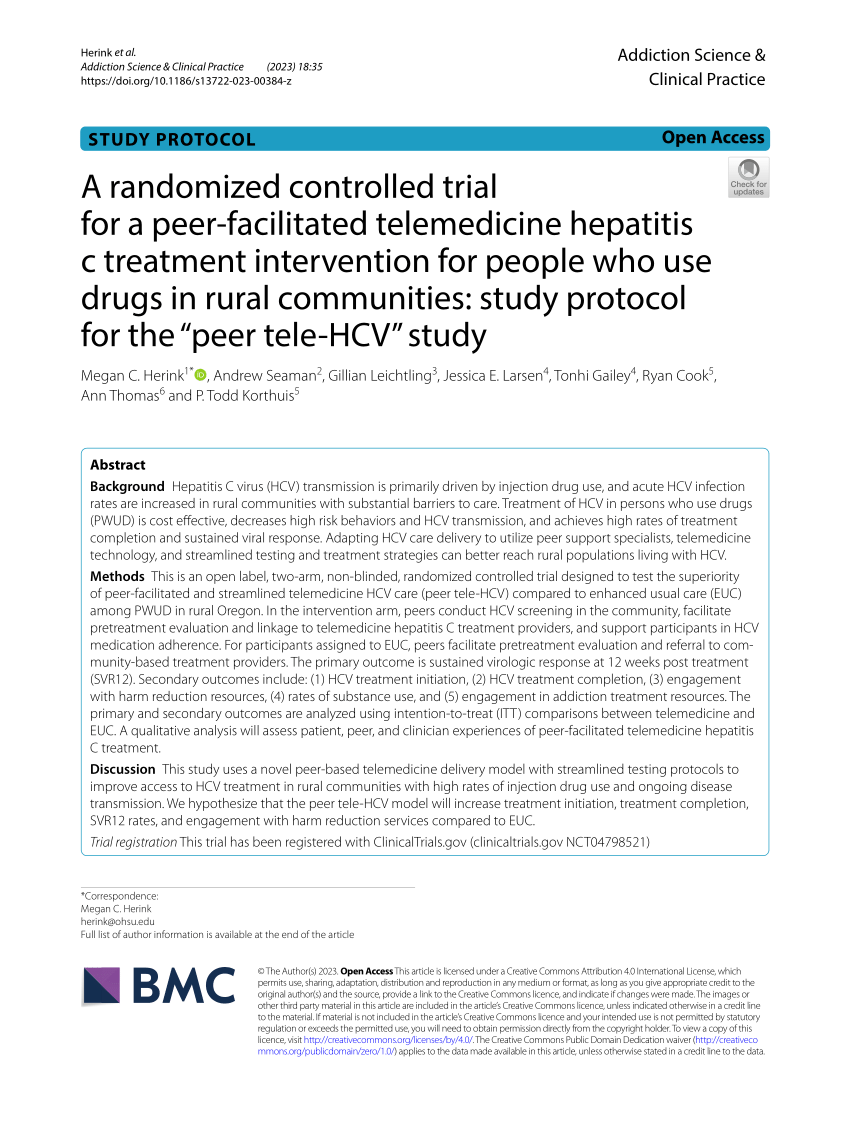Quick Overview
Recent research indicates a significant increase in the diagnosis and treatment success of hepatitis C among rural populations through the use of telehealth and peer support from individuals with lived experience in substance use.
Key Findings
- 85% of participants engaged in treatment via telehealth platforms (tablet or smartphone) compared to just 12% who opted for in-person clinic visits.
- 66% of those receiving telehealth care successfully cleared the hepatitis C virus within six months.
- The study was conducted in seven rural counties in Oregon by Oregon Health & Science University.
Study Details
- The randomized controlled trial involved 203 individuals who use drugs, with outreach conducted by peers who have experienced substance use.
- Participants were either referred to local treatment resources or connected to healthcare professionals through telemedicine.
- Those utilizing telehealth were nearly seven times more likely to receive treatment and four times more likely to achieve viral clearance after six months.
Importance of Peer Support
Lead author Andrew Seaman, M.D., emphasized that individuals in rural areas may trust their peers more than healthcare providers, highlighting the role of peer support in enhancing health outcomes.
Challenges and Opportunities
- Hepatitis C is the most prevalent blood-borne virus in the U.S., affecting approximately 2.4 million people.
- Despite effective antiviral therapies, barriers to testing and treatment persist, particularly in rural settings.
- This study is among the first to validate the effectiveness of telehealth in rural populations specifically for hepatitis C treatment.
Future Implications
The findings suggest that innovative approaches to healthcare delivery, such as telehealth and peer-assisted models, are essential for improving access to treatment in underserved communities. This aligns with national initiatives aimed at eliminating hepatitis C in the U.S.
Research Support
This study was part of the Oregon HOPE initiative, which collaborates with various organizations to provide substance use prevention and treatment services in rural areas.
